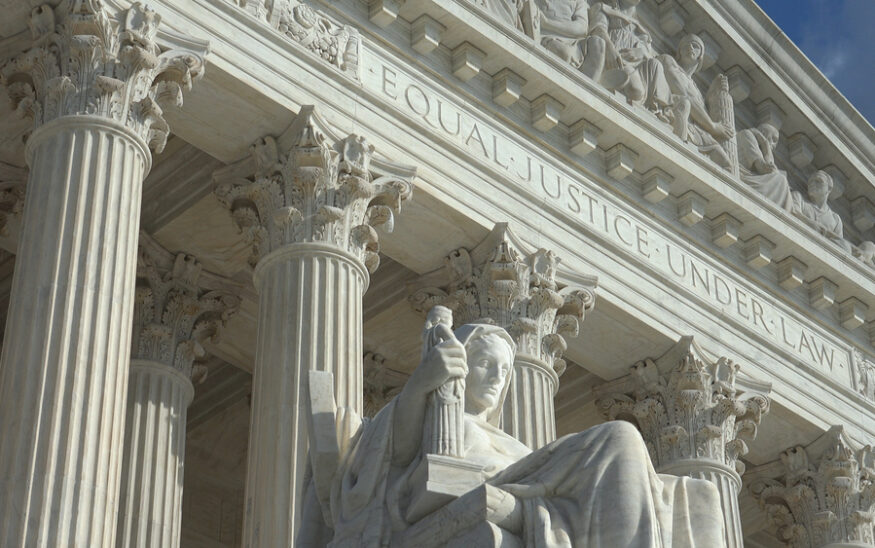Kavanaugh Nomination Could Mean Big Change for Colorado's Growing Business Community
How a conservative leaning court would impact industry and commerce
Sarah Auchterlonie //July 14, 2018//


Kavanaugh Nomination Could Mean Big Change for Colorado's Growing Business Community
How a conservative leaning court would impact industry and commerce
Sarah Auchterlonie //July 14, 2018//

It’s said that a U.S. Supreme Court nominee can change a generation. If that’s true, Colorado’s Gen-X, Gen-Y and younger cohorts are about to be transformed by President Donald Trump’s recent Supreme Court nominee, Brett Kavanaugh. These generations have never before lived with a majority-conservative Supreme Court, which tends to favor taxes, rule against criminals, is lukewarm about free speech and negative toward unions. Kavanaugh will fit right into the conservative fold. When faced with cases about government regulations, gun control and the separation of church and state, the Supreme Court pick often defers to the “history” of the law. In some cases, his time warp relates to the country’s founding – when England occupied the Colonies, guns required balls and powder and Colorado was the Wild West.
Once confirmed Kavanaugh will make a majority of conservative judgements. This means a big change for the middle-aged, who have spent most of their lives with the moderately progressive court that has been in place since the mid-1990s. Justices Sandra Day O’Connor, David Souter, Stephen Breyer and Ruth Bader Ginsburg generally expected Americans to meet higher standards of disclosure, stewardship and sensitivity. For example, in cases involving the rights of persons accused of crime, Ginsburg and Stevens voted in favor of defendants in about 60 percent of cases. In contrast, conservative Justices Antonin Scalia and William Rehnquist voted for criminal defendants in less than 30 percent of cases.
While politicos focus on the Supreme Court’s impact on social issues, the conservative shift will have a meaningful impact on Colorado’s growing business community.
In highly regulated industries, like pharmaceuticals, finance and energy, federal agency regulations and rulings will be met with more skepticism. Expect rulings that require a tighter nexus between an act of Congress and agency regulations. In employment and lending, the disparate impact of facially neutral policies will likely not raise a federal claim. If a law isn’t totally clear as to whether there’s been an illegal practice, a court with Kavanaugh is unlikely to identify a violation, even if there is a regulation on point. Kavanaugh has called consumer protection agencies, like the Securities and Exchange Commission, Federal Trade Commission and Bureau of Consumer Financial Protection, “a headless fourth branch of the U.S. Government.” A court that leans toward Kavanaugh’s views will probably reduce regulatory burdens over time.
In contracts and plea agreements, Trump’s pick is strict. He often rules that if a document is signed, it’s binding – even when federal laws require other formalities. In the future, evidence about a contract’s circumstances or the ability of its terms to be understood will have less value in avoiding a contract’s express provisions. Click-wrap and other small-print form contracts will likely become more enforceable in the years to come. Appeal waivers, online terms of use and mandatory arbitration clauses will likely have fewer loopholes.
In sum, Kavanaugh does not appear to believe that it is the government’s role to protect people from their own uninformed or bad choices.
Kavanaugh’s brand of personal accountability can be harsh when one is accustomed to warning labels, inclusion mandates and an array of federal agencies that regulate products to make our shopping and consumption easier and less environmentally impactful. A conservative Supreme Court will almost certainly require us to fend more for ourselves or develop replacements for the government safety net. With less regulation, consumers will rely more on customer reviews before making a purchase. Brand loyalty may increase as avoiding traps takes precedence over convenience and speed.
Finally, in labor and employment, it’s probable that religious expression moves more into the public sphere and discrimination lawsuits require higher standards of proof. In short, those of us who came of age in the 1990s or after may need to grow thicker skin. This wide pendulum swing to the right comes after nearly 20 years of small and regular shifts and might be uncomfortable at times. From both a business and daily living perspective, the Kavanaugh appointment, alone, might be President Trump’s most important act in office to date.
 Sarah Auchterlonie is an attorney and shareholder with Brownstein Hyatt Farber Schreck, drawing on her experience as an attorney with both the U.S. Department of the Treasury's Office of Thrift Supervision (OTS) and the Consumer Financial Protection Bureau's (CFPB) Office of Enforcement to help defend claims. She can be reachd at [email protected] or 303.223.1228.
Sarah Auchterlonie is an attorney and shareholder with Brownstein Hyatt Farber Schreck, drawing on her experience as an attorney with both the U.S. Department of the Treasury's Office of Thrift Supervision (OTS) and the Consumer Financial Protection Bureau's (CFPB) Office of Enforcement to help defend claims. She can be reachd at [email protected] or 303.223.1228.

























